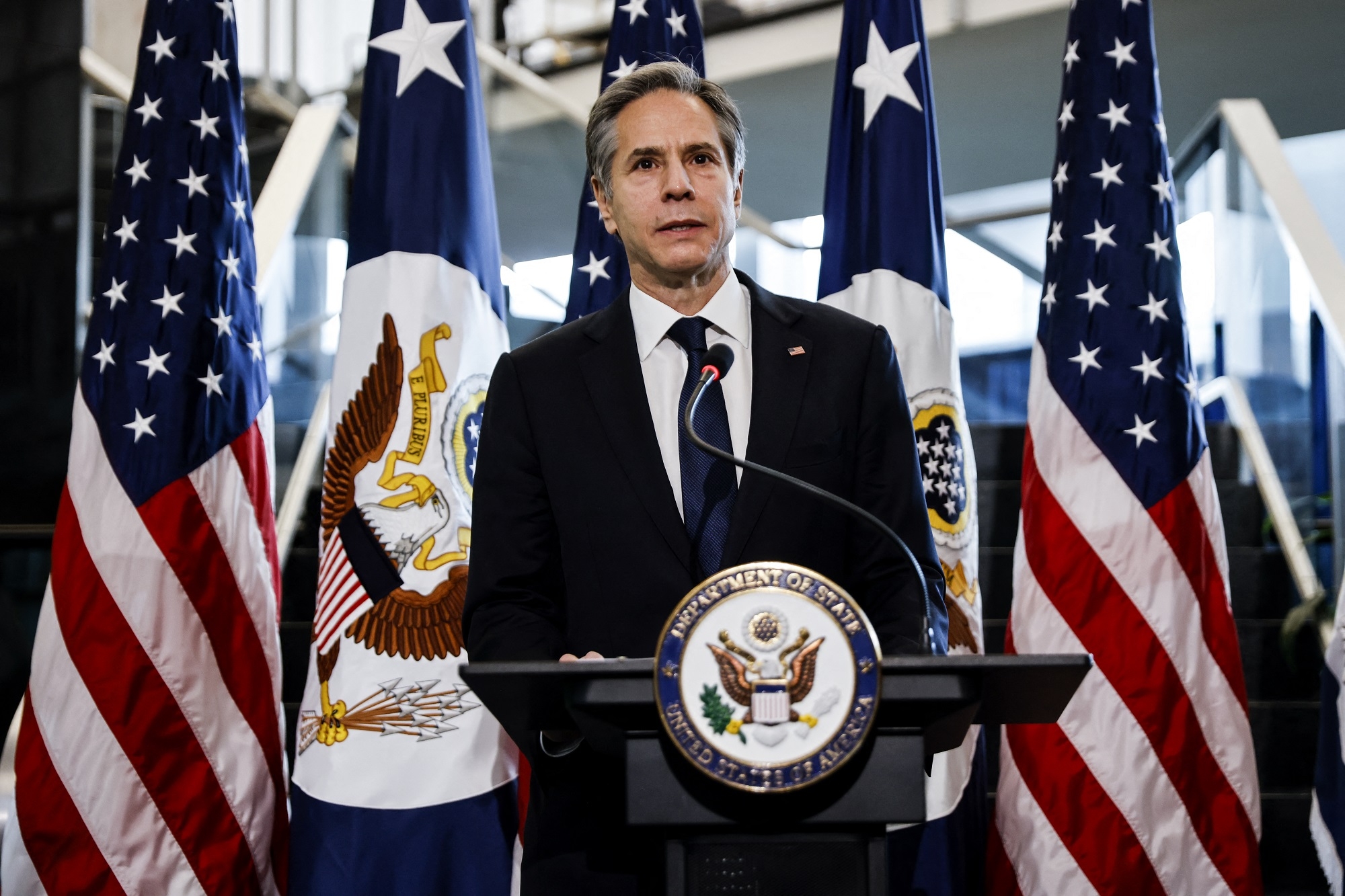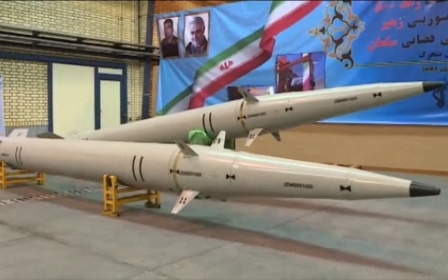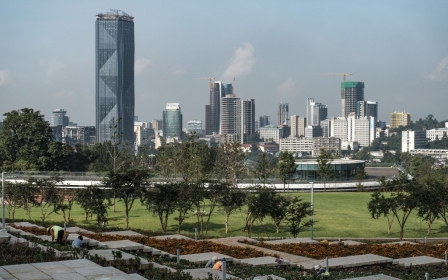'Path to diplomacy' between Iran and US is open, Blinken says

Washington and Tehran have an open "path to diplomacy" to revive the nuclear deal and engage on broader issues, US Secretary of State Tony Blinken has said, amid an impasse over who should comply with the agreement first.
Speaking to National Public Radio on Tuesday, Blinken praised the nuclear agreement, saying that it was "very effective in cutting off all of the pathways that Iran then had to produce fissile material for a nuclear weapon".
Still, he reiterated the administration's stance that Iran must return to full compliance with the pact before the US reinstates its involvement in the deal. But despite next week's looming prospect of further Iranian breaches of the accord, Blinken said there remained a prospect for reviving diplomacy between the two countries.
"The path to diplomacy is open right now. Iran is still a ways away from being in compliance. So we'll have to see what it does," he said.
'The path to diplomacy is open right now'
- Tony Blinken, US secretary of state
The multilateral deal, known as the Joint Comprehensive Plan of Action (JCPOA), saw Iran scale back its nuclear programme in exchange for lifting sanctions against its economy.
Stay informed with MEE's newsletters
Sign up to get the latest alerts, insights and analysis, starting with Turkey Unpacked
Former President Donald Trump nixed the agreement in 2018 and embarked on a "maximum pressure" campaign of sanctions against Tehran.
In response, Iran has been gradually loosening its commitments to the deal by enriching uranium beyond the deal's restrictions. The Iranian parliament also passed a law to downgrade the access of UN inspectors to nuclear facilities if US sanctions are not lifted by 23 February.
"We know that that agreement was working," Blinken said on Tuesday. "Our own intelligence experts as well as the international community told us it was working on its own terms to deny Iran's pathways to fissile material for a bomb. And it's very unfortunate that we pulled out of it."
Khamenei calls on US to act
Iranian officials have been calling on Washington to unconditionally lift sanctions to restore the agreement, vowing to return to compliance immediately after the US does.
On Wednesday, Iranian Supreme Leader Ali Khamenei said the US needed to take action if it was serious about getting back into the deal.
"We have heard many nice words and promises which in practice have been broken and opposite actions have been taken. Words and promises are no good," he said.
Khamenei added that Iran "will also act" if the US takes concrete steps to revive the deal.
Next week's Iranian deadlines concerning UN inspections would not fully end access for International Atomic Energy Agency officials to its nuclear sites.
Rather, it will only halt the "additional protocol" of unscheduled inspections that were granted as part of the JCPOA.
Iranian President Hassan Rouhani downplayed the significance of the restriction after a cabinet meeting on Wednesday. "The Additional Protocol is a step beyond safeguards," he said.
Blinken had said that there was "interest on both sides" as well as from the international community to reimplement the JCPOA, but he repeated the US administration's argument that further negotiations must follow to expand the pact.
"If we're to get back into the deal, if Iran returns to compliance and we do the same, we need to work on an agreement that's longer and stronger than the original one," he said.
"And we also need to engage other issues that were not part of the original negotiation that are deeply problematic for us and for other countries around the world: Iran's ballistic missile program, its destabilising actions in country after country. All of that needs to be engaged."
Iran has ruled out negotiating over its ballistic missile programme or regional policies with Washington, arguing that it was the US which militarised the region with weapon sales to Saudi Arabia and the UAE.
Middle East Eye delivers independent and unrivalled coverage and analysis of the Middle East, North Africa and beyond. To learn more about republishing this content and the associated fees, please fill out this form. More about MEE can be found here.





